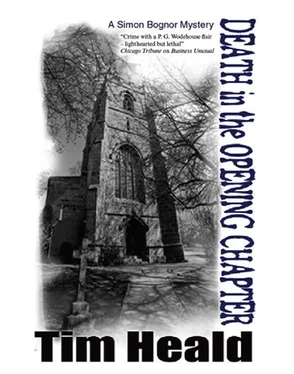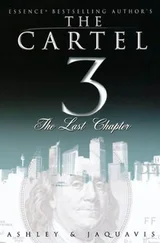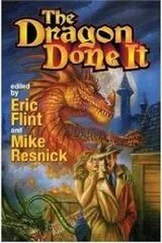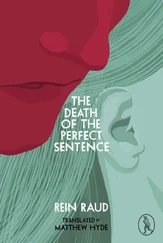Tim Heald - Death in the opening chapter
Здесь есть возможность читать онлайн «Tim Heald - Death in the opening chapter» весь текст электронной книги совершенно бесплатно (целиком полную версию без сокращений). В некоторых случаях можно слушать аудио, скачать через торрент в формате fb2 и присутствует краткое содержание. Жанр: Криминальный детектив, на английском языке. Описание произведения, (предисловие) а так же отзывы посетителей доступны на портале библиотеки ЛибКат.
- Название:Death in the opening chapter
- Автор:
- Жанр:
- Год:неизвестен
- ISBN:нет данных
- Рейтинг книги:5 / 5. Голосов: 1
-
Избранное:Добавить в избранное
- Отзывы:
-
Ваша оценка:
- 100
- 1
- 2
- 3
- 4
- 5
Death in the opening chapter: краткое содержание, описание и аннотация
Предлагаем к чтению аннотацию, описание, краткое содержание или предисловие (зависит от того, что написал сам автор книги «Death in the opening chapter»). Если вы не нашли необходимую информацию о книге — напишите в комментариях, мы постараемся отыскать её.
Death in the opening chapter — читать онлайн бесплатно полную книгу (весь текст) целиком
Ниже представлен текст книги, разбитый по страницам. Система сохранения места последней прочитанной страницы, позволяет с удобством читать онлайн бесплатно книгу «Death in the opening chapter», без необходимости каждый раз заново искать на чём Вы остановились. Поставьте закладку, и сможете в любой момент перейти на страницу, на которой закончили чтение.
Интервал:
Закладка:
‘It’s locked,’ said Sir Branwell, ‘but I have a key.’
EIGHT
Church was a church was a church. Also a scene of crime. Parts of it had been sectioned off with fluorescent tape. Two police officers were on guard. They too were dressed fluorescently. Fluorescence was all the rage these days, thought Bognor whimsically. It was the new luminous orange. It conveyed authority. Confronted with fluorescence, people became orderly. They formed queues, deferred, asked no questions, told no lies. Better a fluorescent jacket than a knighthood. He should know.
‘Cold in here,’ said Monica, shivering. It wasn’t really, but it felt like it. Scenes of crime, which meant places where murder had been committed, often felt colder than they actually were. Association of ideas, fact of life. Or death.
Bognor didn’t know what he was looking for. He seldom did. This mattered very little. In fact, knowing exactly what one was looking for was often a drawback, because it indicated a closed mind incapable of assimilating the unexpected and dealing with surprise. And murder was nearly always a tale of the unexpected, a guilty thing surprised.
He gazed about him, looking for anything that was out of place and not as it should be. Above the pulpit, the board advertised hymns. There were four of them numbered, all to be found in Hymns Ancient and Modern. Nothing out of order there, but, even so, he felt he should see what the choir and congregation had been scheduled to sing.
The result was surprising. Christmas carols, harvest thanksgivings, wedding celebrations and deferential thanks for the graciousness of the royal family were all very well in their way, but not at this time of year, and not all together at once. It probably didn’t signify, but it was still unexpected. He was reminded of the biblical clues in the Stieg Larsson whodunnit about the girl with the tattoo and of the clues in Dan Brown’s best-seller. Both had been read by millions, and there was no reason to suppose that an avid reader had not taken the idea and played with it when killing the Rector of Mallborne.
On the other hand, it could be that Sir Teath’s was a more than usually catholic church, and the selection of hymns was more than usually wide. After all, the bishop was Ebenezer Lariat, aka Bishop Ebb, an old friend of Simon’s ever since they had worked together on the great communion wine scandal of 1983. He was now Bishop of Lymington, and was standing in at short notice for the Reverend Sebastian on the grounds that he was the late Rev.’s superior and could also deliver fifteen or so plausible sermonic minutes at the drop of a mitre. Alas, no room for debutants, even ones as keen as Simon.
Bishop Ebb was due in an hour or so.
The bishop was an Oxford man too. Keble, and muscular with it. He was a rowing blue, and Bognor could picture him in a pink Leander cap, much too small for him, on a foggy, damp boat-race day. He took a third class honours degree in Geography, and was into broken glass and hearty pursuits rather than religion. That came later.
Cuddesdon, curacy in the industrial north, a living in the south, and a doubtful sexuality, coupled with an understated interest in choir boys and wolf cubs, added up to a more or less conventional path to episcopacy. That, at least, was what Contractor thought, and Bognor was inclined to agree.
Ebenezer was not stupid, but he was, on the whole, lazy and had risen, if not exactly without trace, without apparently troubling the scorers. For a relatively public figure, he maintained a low, virtually private, profile. He had published a non-controversial treatise on prayer, aimed, characteristically, at a wide and relatively unspecific audience. This had sold solidly rather than spectacularly, and was eclipsed by his reworking of Hymns Ancient and Modern with a fashionable and predictable emphasis on the Modern.
Bognor forgot where he had first met him, but he seemed to have been part of his emotional scenery for as long as he could remember. From time to time, he consulted Ebenezer on church matters, and he always asked him to their annual Christmas party, if only as a token cleric. Monica didn’t care for him – a usual lack of liking for her sex, though this was by no means universal. The bishop had a very loyal cook and housekeeper called Mrs Grimes. There may have been a Mr Grimes, but, even if he had once existed, he was long departed.
As far as religiosity was concerned, Lariat-Lymington was all things to most men. He was generally considered ‘sound’, but no one knew (or, to be truthful, much cared) where exactly he stood on the ordination of women, whether he was a closet Catholic, or if he thought that the Church of England at prayer, flower-arranging, or even holy dusting, was in any way significant. The bishop just ‘was’.
It was not like Contractor to fail in a task, and he would argue persuasively that, as far as Ebenezer was concerned, he had done the job. Nevertheless, there was a phrase that Bognor had learned from a friend who had become some sort of journalist. This was ‘We do not feel the character quite comes alive’. This was normally the prelude to a rejection in the politest possible sense. Everything was there: education, sporting achievements, size of hat and shoes, colour of eyes, maiden name of maiden aunt, but somehow the Rt Rev. Ebenezer remained strangely skeletal. For all his assiduity and perspicacity, Contractor had failed to put blood and flesh on the bare bones. The bishop remained elusively skeletal. He remained so to all inquisitors, leading some sceptics to maintain that, when you stripped away the flummery and the frocks, the cope and cape, the crook and mitre, there was nothing there at all.
Perhaps so, perhaps not. Despite the sonorous public performance (the bishop had a deep baritone voice, with a matching delivery, of which he was inordinately proud), Ebenezer was a bit of a footnote. Maybe not even that. Which did not mean that he did not possess hidden depths or lacked the capacity to kill.
Meanwhile, Bognor cogitated. He noted the numbers on the hymn board and the words which matched them in Hymns Ancient and Modern. He had no Bible with him, but would borrow one later and cudgel the grey matter yet further in the hope of elucidation. He stared long and hard at the spot above which the cleric’s limp body had recently hung, but, try as he might, his staring produced no answers.
Conceding surrender, if only temporarily, he shifted to seek the woman. However, the only woman who seemed to fit any bill at all was Dorcas Fludd, wife of the Reverend Sebastian, and even he was compelled to admit that Dorcas was a very dark horse indeed. Cherchez Dorcas was an unproductive idea, and yet she and the reverend had been man and wife. They must once, unappealing though the idea might seem, have fancied each other and even, despite the lack of children, had carnal knowledge of each other. And Dorcas was a decent enough sort. Just not what you might call sexy.
You couldn’t, on reflection, rule Dorcas out of the equation. Just because you didn’t fancy her, just because most of the world didn’t fancy her, didn’t mean that she couldn’t kindle fierce passions in the odd, and he meant odd, breast.
He would have to have a word with her, in the hope of finding out what made her and Sebastian tick. It was she who had discovered him, she who had come straight to his cousins, she who had seemed so distraught. Alas, poor sausage!
Bognor was not a particularly religious man. Lapsed C of E, like most of those brought up in the faith. Nevertheless, he had a vestigial respect for the noise it made and for matins and evensong, for the creed, for psalms, hymns and that curious wheedling, sonorous vicar’s voice, which seemed such an essential adjunct to that conventional middle-of-the-road, essentially bloodless faith. It was like English murder, like, in fact, so much of English life: ordered, tidy, neat, devoid of passion. The Church of England queued. The Church of England did not step out of line. The Church of England knew its place. Like so many English things, it was oddly lapsed and in an apparent state of abeyance, and yet there was a sense in which it was slumbering, not dead, and, to men like Bognor, still commanded respect, even at times a certain dread.
Читать дальшеИнтервал:
Закладка:
Похожие книги на «Death in the opening chapter»
Представляем Вашему вниманию похожие книги на «Death in the opening chapter» списком для выбора. Мы отобрали схожую по названию и смыслу литературу в надежде предоставить читателям больше вариантов отыскать новые, интересные, ещё непрочитанные произведения.
Обсуждение, отзывы о книге «Death in the opening chapter» и просто собственные мнения читателей. Оставьте ваши комментарии, напишите, что Вы думаете о произведении, его смысле или главных героях. Укажите что конкретно понравилось, а что нет, и почему Вы так считаете.












